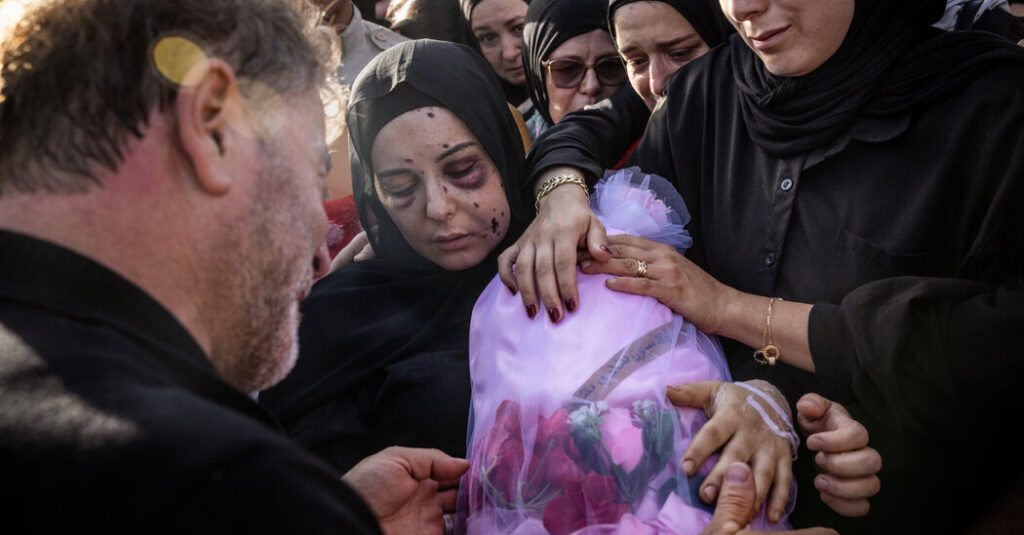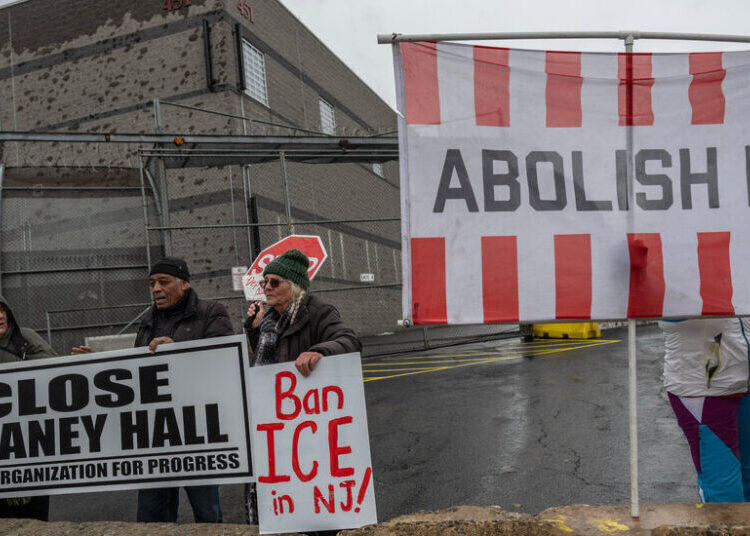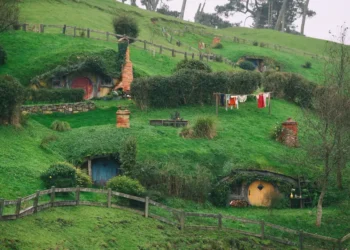‘Imperial Israel’ in the New Middle East
Nov. 26, 2025
Beaufort Castle, atop a towering cliff that rises from the Litani River in southern Lebanon, is a 900-year-old Crusader fortification offering a magnificent panorama. These days, it may also be a place from which to view a killing.
The sky was a cloudless blue on a late September afternoon as the hum of an Israeli drone disturbed the beguiling beauty of the surrounding olive groves and vineyards. Steadily it drew closer.
Then, with a screeching whistle, the drone fired a missile that turned a white car on the highway hundreds of feet below the stone castle into a ball of fire. The explosion reverberated in the valley. Other cars careened to a helter-skelter halt.
About a half-hour later, a New York Times photographer, David Guttenfelder, and I reached the incinerated carcass of the car. The driver’s seat was blown to oblivion. Two distraught young men, dressed in black, picked up small pieces of charred flesh, one by one. They dropped them into plastic bags to be buried the next day.
So goes the cease-fire between Israel and Hezbollah, reached a year ago on Thursday. Almost daily Israeli strikes against Hezbollah, including the killing this week in Beirut of one of the militant group’s top commanders, punctuate a fraying peace. Lebanon exists in a gray zone between war and peace, which could also be the fate of Gaza as Hamas resists disarming and Israel strikes selected targets.
In effect, the war that spilled into Lebanon after the Oct. 7, 2023, Hamas attack on Israel has slowed but never stopped.
“The Israelis say they can’t leave unless Hezbollah disarms, and Hezbollah says how can we disarm as long as the Israelis don’t?” Nawaf Salam, the Lebanese prime minister, said in an interview. “Hezbollah knows things have changed in the region but are still trying to resist.”
A morass of mistrust had now led to a dangerous escalation, and the Trump administration’s target for Hezbollah to disarm completely by the end of the year looks implausible.
Across the region, the United States is pressing to transform the Middle East by new means. “Democracy” is not part of President Trump’s lexicon. Prosperity, not the ballot box, is put forward as the new panacea. But a journey of several weeks to Lebanon, Israel and Turkey suggests that, for now, renewed war is likelier than spreading peace.
The situation in Lebanon offers a compelling example of a new Middle East where Israel’s reach is near ubiquitous. The Iran-led “axis of resistance,” of which Hezbollah has been a central part, is a shadow of its former self. Iran, battered by Israel in a brief June war, is weaker. Syria, after the fall of the Assad regime last year, is no longer a friend of Tehran; nor is it the pipeline for Iranian arms to Hezbollah that it once was.
The region is adapting to what Abdulkhaleq Abdulla, a prominent political scientist in the United Arab Emirates, calls an “imperial Israel,” a country that will kill enemies anywhere: from Lebanon to Syria, Gaza to Iran, Yemen to Qatar. Pre-emptive Israeli strikes are the new norm.
Given such dominance, the United States will have to decide what constraints, if any, it will impose on Israel in the interests of furthering peace in the region. One way to achieve this may be strengthening the militaries of other regional players, like Saudi Arabia or Turkey, which Mr. Trump seems intent on doing.
For Hezbollah, diminished but defiant, the adjustment has been severe. It has not responded militarily to Israel’s attacks on Lebanon, even since they intensified after the Gaza cease-fire last month.
Israel accuses Hezbollah, which has deep roots in Lebanon’s large Shia community, of seeking to rebuild its combat capacities.
Tom Barrack, the U. S. ambassador to Turkey and special envoy to Lebanon and Syria, told me that if Israel senses any threat, “They’re going to respond anytime, anywhere.”
“When the Israelis find these guys, they just take them out, so you have two or three a week that are whacked,” he said of the strikes against Hezbollah.
That was the fate of Hassan Abdel Karim Shahrour, later identified by Hezbollah, in his white car beneath Beaufort Castle on Sept. 20. The Israeli military said it had “eliminated” a “Hezbollah terrorist.”
A Hezbollah statement the next day read: “You are invited to participate in the blessed funeral procession of the happy martyr on the road to Jerusalem.”
‘Don’t Forget or Forgive’
Shlomi Hatan, a rifle slung over his shoulder, sat in the On-the-Border Café gazing across its green AstroTurf flooring at the Israeli side of the border wall. “Peace Train,” a Cat Stevens number, played on the sound system, loud enough to be heard on the other side of the wall, in Lebanon.
Murals and inscriptions with an unlikely theme of reconciliation and peace adorn the barrier, including a woman watering an olive tree and words from the Book of Isaiah: “They will beat swords into plowshares.”
Six years ago, in a moment of optimism, 10 artists came for a month to Shtula, a small Israeli farming community that abuts the Lebanese border. Each was to paint a symbol of peace on a 33-foot stretch of wall. Now the images seem more a portrait of human delusion.
Under Prime Minister Benjamin Netanyahu, Israel’s war in Gaza, which killed tens of thousands of Palestinians, has hurt Israel’s image, deepened its global isolation and divided Israelis. Against this charged backdrop, it is unclear whether Israel has the political cohesion and will to turn the dominance of its armed forces into strategic security.
Mr. Hatan, 55, is an uninhibited voice for Israel’s new strategy of aggressive pre-emption. He was born in Shtula and is the chief security officer of his small community.
Most of the 300 residents of the village were evacuated under Hezbollah rocket fire after the Oct. 7 Hamas attack. They were among the 60,000 Israelis moved out of northern Israel two years ago.
But he could not abandon the community that has been his life. Only a third of residents have returned. Stray cats slink along empty streets.
In the distance, spindly Israeli communications towers on five hilltops inside Lebanon glinted reddish in the sun. Israel, to Lebanon’s fury, has refused to remove the small encampments around them despite the cease-fire that called for a complete Israeli withdrawal.
“We’re not going back to the situation before Oct. 7, with our enemy close to the fence,” Mr. Hatan said, pointing to the ruin of a Hezbollah observation tower. “Our definition of suspicious movement is now very low and will draw an immediate response.”
Before the Oct. 7 attack, Israel was a nation lulled, he now believes. Tourism, peace and a thriving economy were hard to resist. The enemy, whether in Lebanon or Gaza, appeared deterred before “they took the masks off their faces,” he said.
We wandered along the wall. “Now, we will have to live by the sword for the next century,” he said.
I entered a concrete guard post facing Lebanon. Scratched on its wall beside a narrow loophole were the words: “Man. Father. Jew. Israeli. Don’t forget or forgive. Remember why you are here and what you are facing.”
The Uncompromising Hegemon
“The so-called cessation of hostilities,” as he put it, has been a frustration for Mr. Salam, the Lebanese prime minister.
A lawyer from a prominent Beirut family, he took up his job early this year as a reformist determined to establish the Lebanese state’s exclusive right to bear arms. A largely failed state has never achieved this. This goal means disarming Hezbollah, and Mr. Salam’s underpaid, ill-equipped national army is charged with doing that.
The drumbeat of Israeli strikes complicates that task on his side of the border.
“We have an unchecked player acting as a hegemon under a leader, Netanyahu, growing stronger by the day,” Mr. Salam told me. “At the same time there’s a new generation across the world that can no longer tolerate Israeli behavior.”
Israel pledged in the truce last year to withdraw from Lebanon within 60 days, but “stayed in five points on hilltops,” Mr. Salam said. He has raised this issue many times, including with Maj. Gen. Jasper Jeffers III, the American officer who was a leader of the “monitoring mechanism” of the cease-fire for several months, but to no avail.
“I told him we are not in 1914 or 1915,” Mr. Salam said with exasperation. “To monitor what goes on around you, you don’t need to be on top of a 700-meter hill with binoculars or a Galileo telescope! Israel has satellite imagery and drones and balloons with the most sophisticated cameras on earth.”
France, which oversees the cease-fire alongside the United States, formally demanded this month that Israel withdraw from the five positions, but the United States has not publicly pressed the issue.
Morgan Ortagus, a senior U.S. envoy to the Middle East, insisted in Beirut recently that the Lebanese Army complete the total disarmament of Hezbollah by the end of the year. There was no suggestion of any quid pro quo.
Yassine Jaber, the Lebanese finance minister, questioned the army’s ability to achieve that goal. “You cannot ask the army to do wonders when they lack the means, and the behavior of the Israeli side is undermining it,” he said.
Mr. Barrack acknowledged that the obstacles to Hezbollah disarmament are formidable. The group is at once an established political party in Lebanon with considerable Shia support and a U.S.-designated terrorist group.
“If you’re a soldier in the Lebanese army earning $300 a month, you have to have three jobs. You’re an Uber driver, a barista and a soldier,” he said. “So you go knock on a Shia door on Mondays and say, ‘I’m sorry, man, can I go into your basement and take out the AK-47s?’ And you’re risking your life.”
Still, he added, “We’ve got to have just one army” in Lebanon.
‘Our Weapons Will Remain’
Achieving that will not be easy. A weakened Hezbollah is not a powerless Hezbollah. Funds still reach it through the drug trade and other means. Its fighters still number in the tens of thousands, by most estimates. In the Shia-dominated Dahiya neighborhood of south Beirut, the mood is defiant.
“Israel will be humiliated! Israel will be gone! We are far from humiliation!”
The cries rose from a Hezbollah crowd of about 1,000 people gathered in a giant hangar during our visit in September.
Rapt, they listened to a speech by Naim Qassem, the Hezbollah leader appointed last year to replace Hassan Nasrallah, who was assassinated by Israel on Sept. 27, 2024, leaving Hezbollah rudderless.
Mr. Qassem appeared from an unknown location on a large screen. He was flanked by photographs of the dead, including many young boys and girls. The occasion was the commemoration of another Hezbollah commander killed by Israel last year, Ibrahim Aqeel.
A partition separated a crowd of men and women, in roughly equal numbers. The women all wore black with yellow sashes. They bore photographs of their dead relatives.
It was a reminder that each death inflicted by Israel, or by either side, seems only to fortify the resolve of its enemies, no matter how weakened, and erode any impulse for peace. A Hezbollah billboard on the coastal highway said it all: “When we are victorious, we win, and when we are martyred, we win.”
A deep crater in Dahiya, where Israeli bombs killed Mr. Nasrallah, has been left almost untouched. A model hand rises from the point of impact holding a yellow, rifle-emblazoned Hezbollah flag. A billboard says, “I won’t abandon you.”
“The enemy is still the same enemy, and the perpetrator of the massacres is the same,” Mr. Qassem declared. “So how can we abandon weapons? How? No, our weapons will remain. From now until the Judgment Day, they will remain!”
‘War Chases Us’
Lebanon’s south has long been Hezbollah’s stronghold and the crossroads of conflict with Israel. It is here that Israeli forces rolled across the frontier in 2024 in response to Hezbollah attacks. Fear and violence are rampant in these borderlands, where the wounds that Israel has inflicted run deepest.
Abbas Fakhr al-Din, the soft-spoken mayor of Nabatieh, a city in southern Lebanon, sat beneath a portrait of Ahmad Kahil, a doctor and his predecessor. Dr. Kahil was killed in an Israeli strike on the municipal building on Oct. 16, 2024, that took the lives of 16 people in all. The rubble remains.
I asked Mr. al-Din if he was afraid. “No,” he said. “I have to be with my people through good times and bad.”
Nabatieh and the surrounding area continue to be hit by intermittent Israeli strikes, killing people and heightening the sense that the cease-fire is even less stable than Lebanon’s battered buildings. To the mayor’s eyes, American strategy is devoted solely to support of Israel.
“Everything is being done to accommodate Israeli aggression and make it easy for Israel to stay,” Mr. al-Din said, spreading his arms in bewilderment. “What has happened to humanity among the regimes of the world?”
Hezbollah, he continued, now faces two enemies: Israel and a hostile regime in Syria, which once provided essential support.
Syria’s new president, Ahmed al-Sharaa, a former Sunni jihadist who set up an affiliate of Al Qaeda in Syria before moderating his views, is no friend of Iran or of its proxies like Hezbollah.
Mr. al-Sharaa has not forgotten Iran’s strong support for Bashar al-Assad, the brutal tyrant he deposed last year after a 13-year civil war.
“Syria was a big loss, some Hezbollah people say we lost everything,” the mayor, a Hezbollah sympathizer but not a member, said. “So we have two fears, to the south and to the east, and are asked to disarm!”
Farther south, adjacent to the Israeli border, the town of Khiam offers a portrait of the widespread devastation found in the area. Only Christian villages have been spared.
In Khiam, slabs of concrete hang at unlikely angles from crumpled buildings. Somehow the slender minaret of a mosque still stands over the prayer area beneath it that is in ruins.
A couple of earthmovers heave rubble here and there, to no clear purpose. Every now and then a corpse is found beneath masonry. Yellow Hezbollah flags flutter in the swirling dust.
Israeli bombardment, during the war and since, has left no more than the shell of a town where 28,000 people once lived. The number of its dead is unclear, but is certainly in the hundreds.
Khaled Moussa, 23, a Syrian refugee who said he fled from the Syrian civil war at the age of 10 “carried on the neck of my father,” sipped a thick grainy coffee at a solitary street stand.
“War chases us,” he said.
An Effective Distraction?
The living Israeli hostages taken by Hamas are all home from Gaza. That is a great relief to Orna Weinberg at the Menara kibbutz on the Lebanese border.
But she is still angry, full of distrust for the government under Mr. Netanyahu that, she believes, will use expanding conflict to keep itself in power. Israel’s ready resort to pre-emptive strikes against enemies anywhere looks to her like a recipe for endless conflict.
They “can ignite the whole area again if it serves them,” including in Lebanon, she said.
She saw Hezbollah shelling devastate the kibbutz in the immediate aftermath of the Oct. 7 Hamas attack on Israel. The place she loves and where she has spent her entire life had to be abandoned.
But as the war in Gaza dragged on for two years, she recoiled from talk by the extreme right of there being “no innocent people in Gaza” and of “death to Arabs,” which, she noted, would mean killing Arab citizens of Israel, who constitute one-fifth of the population.
She cannot abide the way Israel’s wars since Oct. 7, 2023, have been prosecuted. “Once your government does things that contradict your morals and your very basic feelings and thoughts and ideas and principles, it shatters the soul,” she told me. “It does something awful.”
Unlike Mr. Hatan, 35 miles southwest on the same Lebanese border, she is appalled by Mr. Netanyahu and what a militant Israel has become. Divisions in Israeli society are more raw than ever.
War, she noted, is an effective distraction. Mr. Netanyahu is acutely aware of this. On Nov. 2, he said, “We will not allow Lebanon to become a renewed front against us and will act as necessary.”
Peace May Be Overrated
Mr. Barrack, the American envoy, invited me onto the terrace of the U.S. ambassador’s residence in Istanbul, which overlooks the Bosporus.
Container ships chugged down the wind-whipped waterway, fought over for centuries by covetous powers. From here, for more than five centuries, the Ottoman Empire, which once stretched from the Danube to the Persian Gulf, cast its soporific sway over more than 20 nationalities.
An old business pal of Mr. Trump, Mr. Barrack is trying to calm the wars that have ravaged the Middle East since that empire was carved up a century ago. Now, in his estimation, the region is at a new turning point.
A realist with a can-do briskness, a Californian descended from Lebanese Christian immigrants, he is skeptical of the word “peace,” which he considers illusory or at best temporary in an environment of deep wounds.
He prefers to speak of fostering cooperative prosperity, preventing needless death and getting the lights turned on from Damascus to Beirut. “It’s not the land you hold,” he told me, “it’s the way you live.”
In states like Lebanon and Syria, people have been killing each other for too long over what he called “facts that don’t matter any more.” Mr. Barrack wants a “timeout.”
“How many more generations do you want to kill each other?” he asked.
It’s a good question, but in a region where the disputed facts of the past often hold an iron grip on people, a demand for forward-looking pragmatism in the name of creating wealth can seem far-fetched. The United States has had bold but ill-fated plans before in the Middle East.
The Palestinian people want a state, and it seems inconceivable that money will ever alter that national ambition. This issue’s capacity to ignite war at regular intervals has been demonstrated over and over.
Still, America has upended its approach to the region. Out with circuitous diplomacy and phrases like “two-state solution.” In with bold action creating momentum toward what Mr. Trump calls “a new dawn.”
Mr. Trump’s grand vision is to combine Gulf capital, Lebanese commercial ingenuity, Israeli technology and a large Arab work force to produce economic miracles that conciliate the Middle East. It remains to be seen whether it is more than an illusion.
Mr. Barrack is pushing hard to seize the moment. Disarming Hezbollah, he tells Lebanese leaders, will “bring in the Saudis and the Qataris, who have been burned in Lebanon because they tried and the money went to corruption.”
Mr. Salam told me that Mr. Barrack had suggested simultaneous steps by Israel and Hezbollah as the way forward. “Hezbollah hands over some weapons and vacates part of the country, Israel withdraws from two of the five points, and so on,” he said.
There was a long silence. “It was an excellent idea of his, but nothing.”
‘What Is the Point?’
On Sept. 21, the day after the killing below Beaufort Castle, Israel acted as it deemed necessary in the town of Bint Jbeil in southern Lebanon.
A drone strike on Shadi Charara’s car killed him, his two 18-month-old twins, Hadi and Silan, and his eight-year-old daughter, Celine. His wife, Amani Bazzi, survived. A man on a motorcycle was also killed.
Asked about the incident, the Israeli military said it had targeted an unnamed Hezbollah operative and “during the neutralization of the terrorist in an airstrike, a second vehicle carrying civilians approached the target, and as a result of the strike that vehicle was hit, too.”
It added that it “regrets any harm caused to uninvolved individuals.”
Thousands of people attended the funeral of the family on Sept. 23. The tiny coffins of the twins bore a photograph of each of them and were covered in Lebanese flags. The infants themselves were wrapped in blue and pink cloth as they were lowered into the ground.
There were no yellow Hezbollah flags, no Hezbollah rhetoric, no indication that this Lebanese family had any Hezbollah ties.
On the day of the drone strike, Mr. Salam told me he had received a phone call from the Monitoring Mechanism, which adjudicates compliance with the cease-fire in Lebanon and is led by the United States and France. The Mechanism reported to the Lebanese prime minister that it had held an “excellent meeting.”
“A half-hour later I get another call reporting five killed, including three children, by an Israeli drone strike in Bint Jbeil,” Mr. Salam said. “I feel frustrated, but what is the point of protesting again and again?”
Roger Cohen is the Paris Bureau chief for The Times, covering France and beyond. He has reported on wars in Lebanon, Bosnia and Ukraine, and between Israel and Gaza, in more than four decades as a journalist. At The Times, he has been a correspondent, foreign editor and columnist.
The post ‘Imperial Israel’ in the New Middle East appeared first on New York Times.




